Search Results for Tag: China
Climate talks at glacial place?
Who would have believed it? It has been a long time since the routine UN climate talks in Bonn aroused much in the way of enthusiasm. Frustration or even despair were more likely the order of the day.
Since the debacle in Copenhagen in 2009, it has been hard to stir up any kind of optimism in the climate debate. The planet is heating up, CO2 emissions are still on the increase, the ice caps are melting, storms, floods and droughts are causing huge problems even for wealthy, industrialized nations.
At the same time the UN negotiations have been slithering along at glacial pace. One upon a time, that meant very slow. But with increasing warming, even the ice giants are on the move. The sea level is rising – and maybe even the UN climate talks are sliding into motion.
A glimmer of hope from the climate sinners?
In recent years, the UN summer meetings on the banks of the Rhine were at best good to fill a hole on a news-slack day. This time, it was different. Just before the talks started, US President Barack Obama got the “snowball” rolling with his announcement he would use the Environmental Protection Agency to impose tough restrictions on emissions from coal power plants.
It’s time for innovative solutions all round. Extreme weather at home has taught America to fear climate change. Obama wants climate action to be his legacy. That can only be a good thing for all of us.
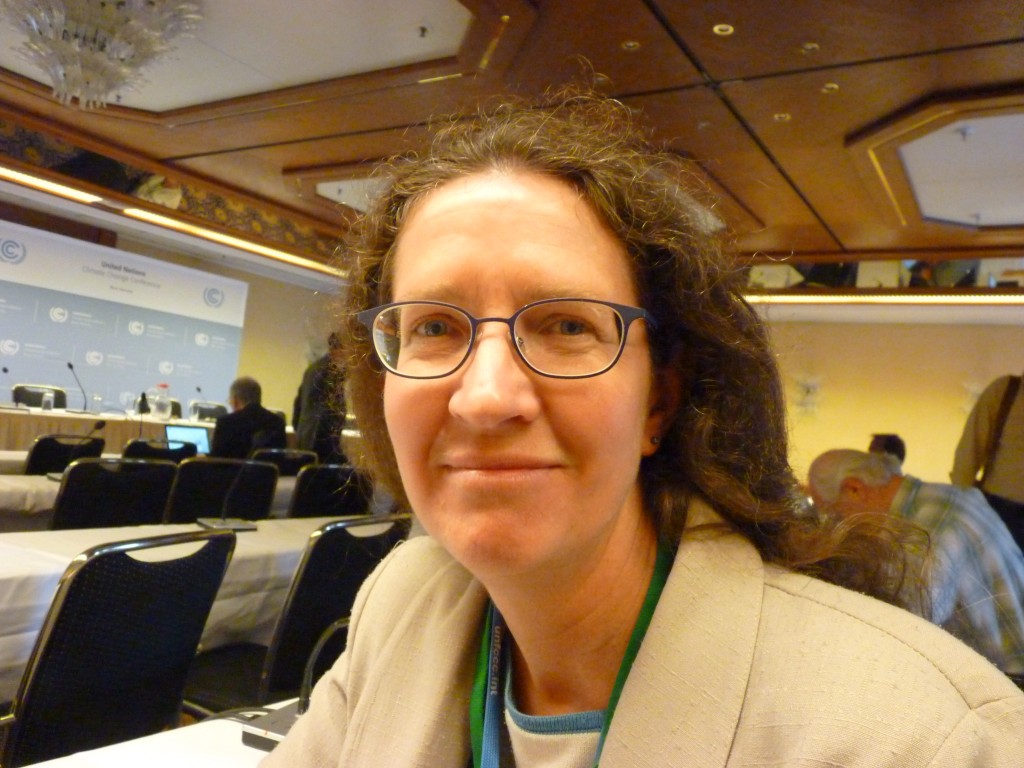
Pam Pearson, Director of the International Cryosphere Climate Initiative told me people in her home state Florida are more aware of the importance of the polar ice. (Pic: IQ)
When China then came out with the intention to cap its emissions, the world really had to sit up and take notice. Even the to-ing and fro-ing on how, why and when, or whether it was just the “personal opinion” of a high-ranking climate representative could not dampen the enthusiasm. For the first time ever, it looks as if the world’s two biggest emitters could actually be prepared to act.
Meanwhile more encouraging signs came out of India and Latin America.
Renewables on the ‘up’
At the start of the Bonn talks, a broad coalition of environment, human rights, indigenous and women’s groups demonstrated outside the conference venue for a worldwide switch to renewable energies. By the end of the talks, 60 countries had signaled support for a 100 percent switch by 2050. German Environment Minister Barbara Hendricks had to admit Germany was not making its targets right now, but would introduce new measures to reach its ambitious goal of a 40 percent emissions reduction by 2020.
If the EU could also bring itself to increase its targets and regain its old position as a climate leader, if the energy crisis caused by the Ukraine dispute could convince politicians that renewable energy is the key to energy security and independence, Europe could well be on its way to hosting a conference that will give birth to a new global agreement.
And even if the UN structures cannot move fast enough: renewable energies are on the rise. UNEP figures show more investment in renewables in the last year than in oil, coal and gas together. Even outside the UN context governments, companies and consumers are finding reason enough to reduce fossil fuel consumption. All is not yet lost for the melting icecaps. The climate snowball is gathering speed.
Time for a “new environmentalism”?
What are these cuddly marmots doing on an exhibition stand at Green Week, Europe’s biggest environment policy gathering, being held this week in the Belgian capital Brussels? They have the honour of decorating the stand of the Swiss-based World Resources Forum, not just because they look cute, a representative tells me, but because of their resources-saving, nature-friendly lifestyle. The “marmies” (I have enjoyed their antics many times while hiking in the Swiss Alps) are the hibernating, vegetarian type. They eat enough in the short alpine summer to see them through the winter, which they spend in burrows on the hillside.
Meanwhile, we humans consume the planet’s resources at a disastrously unsustainable rate and pump greenhouse gases into the atmosphere at a rate that is threatening to change the planet beyond recognition, melting polar ice, destroying much of our biodiversity, raising the sea-levels, making the oceans more acid at the same time and devastating many regions with extreme weather, storms, floods and drought.
Hm. Small wonder this year’s Green Week kicked off with a high-level debate on whether we need a “new environmentalism”. James Murray, editor of the London-based online “businessGreen” magazine, who chaired the “summit”, says “environmentalism is in crisis” and green economic models are not becoming mainstream fast enough.
Keynote speaker Jeffrey Sachs, Director of the Earth Institute at Columbia University and environmental guru to many, said fighting climate change certainly had to become priority No.1. In this connection, he picked up on President Obama’s move to break the climate deadlock by capping coal power plant pollution through the EPA. Last time I spoke to him at a meeting in Abu Dhabi last year, he was very frustrated about his country’s stance on emissions and climate. Understandably he is delighted by the new move. We have the technology, says Sachs. These new regulations would force US states to come up with concrete plans to reduce emissions. What we need, he says, is political determination backed up by a firm plan and timetable.
UNEP chief Achim Steiner was also here in Brussels for the gathering. He told me in an interview he didn’t think we need a “new environmentalism”. The environment movement has to keep evolving to meet the challenges of the respective age, he says. And we shouldn’t do down the achievements of environment campaigners to date. He too is upbeat about the Obama administration initiative – and the possibility that China could be prepared to put a cap on its emissions. Nevertheless, even this most optimistic of UN officials has to admit we lack satisfactory answers to many of the sustainability-related challenges of our time.
Marco Lambertini, new DG of WWF International, with whom I conducted an interview when he took office, was addressing the forum for the ngo community. He told me then and repeated here that WWF is changing its campaigning style to reach the masses of people who are not “the converted”. We have to leave our comfort zone, as he puts it. And social media play a key role, he says. He talked about Earth Day and how it has turned from an ngo thing into a local community-driven mass event, thanks especially to the power of social media. He also argues for abandoning what he calls “post-colonial environmentalism”, i.e. money from the north to fund projects in the south, in favour of a more inclusive, local-to-global approach. Only mass pressure from millions can really change the system, Lambertini argues.
Sandra Steingraber, American biologist, author, film-maker and anti-fracking campaigner went furthest in her considerations of the state of the environment movement. Reminding the forum that improvements in the US climate record were thanks to the use of environmentally irresponsible fracking, she says the world is being held hostage by the fossil fuels industry and “we need a vigorous new environment movement to engage in hostage rescue”.
In a week where my attention is shifting between the debates here in Brussels on just what we need to bring about a circular economy and protect strained resources and a stressed environment, and the talks at home in Bonn aimed at a new international climate agreements, it becomes clearer than ever that the issues are completely inter-connected. The increased attention shown by my media colleagues both at DW and amongst the other stations and publications in both the Green Week and the UN talks in Bonn makes me feel optimistic, on the one hand. Environment and climate have come into the mainstream. On the other hand, that demonstrates how seriously they are under threat.
Please see also my DW article on Green Week, the UN climate talks and environmentalism and my interview with Germanwatch political director Christoph Bals on the prospects for those Bonn climate talks.
Climate change back on the agenda?
Trawling the media for climate-related stories over the weekend, I began to see some signs that the message might be getting across after all. I had just put the finishing touches to my story on “Why we don’t want to hear about climate change“, based on interviews with sociologist Kari Marie Norgaard from the University of Oregon and psychologist Per Stoknes from the Norwegian Business school, when I heard US Secretary of State John Kerry’s announcement that the USA and China would be cooperating and exchanging data in the run-up to the 2015 Paris climate talks, where a new climate deal is supposed to be agreed. I found myself feeling just a little bit more optimistic. If these two key players really put climate protection into action, maybe we will be able to get somewhere. A report on a study by the Chinese government on the disastrous air pollution in Beijing is not happy reading, but gives grounds to assume the Chinese government has to be serious about taking emissions in hand.
Arctic ambassador – a sign of the times?
Another announcement by the US Sec of State leaves me with mixed feelings. There is going to be a US ambassador for the Arctic. On the one hand, it is always good to see the Arctic getting attention. On the other hand, the motivation does not make me jump for joy. An item from the news agency AFP writes of “a region increasingly coveted by several countries for its oil and other raw materials”. Indeed. That is the worrying bit. In case you missed it, (the Arctic announcement did not get huge coverage), Kerry said in his statement:
“The Arctic region is the last global frontier and a region with enormous and growing geostrategic, economic, climate, environment and national security implications for the United States and the world…President Obama and I are committed to elevating our attention and effort to keep up with the opportunities and consequences presented by the Arctic’s rapid transformation – a very rare convergence of almost every national priority in the most rapidly-changing region on the face of the Earth”. It is good to see climate and environment get a mention at least.
A “Stern” warning
The Guardian had a guest article by Nicholas Stern, the author of that famous Stern Report on the economics of climate change back in 2006 (yes, it really is that long ago).The background to this, of course, is the wild weather in the UK. Now I do not wish that kind of weather on anyone, but in terms of drawing attention to climate change it has certainly been very important. Stern writes “The record rainfall and storm surges that have brought flooding across the UK are a clear sign that we are already experiencing the impacts of climate change”. He makes a clear case for linking the two. He also brings in the other extreme weather around the globe, including Australia, Argentina and Brazil and the devastating typhoon Haiyan in the Philippines last year. Stern has clear advice for the politicians:
“This is a pattern of global change that it would be very unwise to ignore.” Stern says the risks are even bigger than when he wrote the 2006 report. “Since then, annual greenhaouse gas emissions have increased steeply and some of the impacts, such as the decline of Arctic sea ice, have started to happen much more quickly.”
I hope a lot of decision-makers and influential business people have read or will still read Stern’s article. He calls for rapid action and investment. He has a clear message for the European Union, currently not the most popular international organisation with the British government. “The UK whould work with the rest of the EU to create a unified and much better functioning energy market and power grid structure. ‘this would also increase energy security, lower costs and reduce emissions. What better was is there to bring Europe together?” Other measures recommended would be to implement a “strong price on greenhouse gas pollution across the economy”. This, remember, is a renowned economist, not an environmental campaigner. He also warns against the temptation to cut overseas aid to fund adaptation to climate change. “It would be deeply immoral to penalise the 1.2 billion people around the world who libve in extreme poverty…In fact, the UK should be increasing aid to poor countries to help them develop economically in a climate that is becoming more hostile largely because of past emissions by rich countries”- Yes. Yes. Yes.
Don’t let the weather distract from your climate awareness!
The other piece of writing which inspired me over the weekend was in the ImaGeo blog by Tom Yulsman: “Move over polar vortex“. He looks at the new analysis produced by the UK’s Met Office:
“If a new scientific analysis is correct, the repeated bouts of extreme weather on either side of the Atlantic are indeed unusual – and both are manifestations of a chain of climatic teleconnections that reach half way around the globe and all the way to the tropics”.
There is a lot of talk in this piece of whether the polar vortex is weak (as discussed in my article More Arctic Weather in a Warming World?) Or actually “particularly intense”. I would recommend you read Tom’s blog for yourselves for the details and his views. But the insight I would leave you with here as “food for thought” is where he quotes a paper in the journal Science.
“They conclude that the recent discourse focusing on the possible connections between winter weather and climate change distracts from the bigger issue: that is, regardless of extreme winter weather, climate change is undoubtedly real, and that harsh winters are not what we really need to be concerned about going forward as the climate continues to change”.
People love to talk about the weather. But if we use every instance of unusual weather to question the overall trend of global warming, with all the complex effects that has on our climate, winds, oceans etc, we run the risk of losing a necessary sense of urgency when it comes to reducing emissions. I am reminded, as I often am, of a young climate ambassador from the Netherlands during a fact-finding trip to Alaska in 2008. As we stood at the Visitor’s Centre for a glacier which is now no longer visible from that spot because it has retreated so far, he said that just brought home to him how “everything is connected”. Our everyday lifestyle in the industrialised world is melting the Arctic ice – and that, in turn, is contributing to the changing climate patterns which can radically alter the planet.
How big is Chinese interest in Greenland?
I have come across an interesting perspective on this on www.chinadialogue.net. “The Chinese scramble into Greenland is overhyped” is the headline of an article by Jonas Parello-Plesner. The author maintains there is little evidence of a Chinese scramble for the Arctic. This would seem to contradict a lot of what I have been hearing and reading, so the title jumped out at me. The article appears on a bilingual English-Chinese site dealing with environment-related issues.
Clearly, Beijing is interested in accessing mineral resources all over the world. As far as the Arctic is concerned, the question, it seems to me, is to what extent that interest is already turning into involvement. The trade agreement with Iceland is one sure sign of interest in the shipping routes through the Arctic, as discussed here on the Ice Blog and in various articles over the past year or so. The new Chinese icebreaker and Chinese voyages through the High North are other indicators of interest turning into activity. When it comes to Greenland, Jonas Parello-Plesner has some interesting points. Let me quote one of them: “Actually, the public face of Chinese involvement, Xiaogang Hu of London Mining, who was spearheading a high profile investment in an iron ore project, left his position in April. Locals explained this as a result of new Greenlandic leader Hammond’s intention to revise the Large Scale Act, which was enacted under the previous government and allows scores of foreign workers on mining projects. Xiaogang was als the link to Chinese investors like Sichuan Xinye Mining Investment or the China Development Bank.”
This is, I believe, an interesting development. “It looks like Chinese investors – and their workers – are waiting and watching, rather than invading,” is the article’s conclusion from this. Remember all the talk of the 2,000 Chinese workers reported to be heading for Greenland? Concern about this was said to be one of the factors that led to the change of government. Understandably, the Greenlanders would like to have the wealth to fund independence from Denmark. But at what cost? The major price could well be environmental destruction. The other question for the island’s leaders is how they can ensure that Greenland actually benefits from mining or drilling activities. The small population would have to work with foreign partners. The new government has introduced royalties to prevent profits disappearing offshore. Parello-Plessner says the challenge for Greenland is not just how to deal with Chinese interest, but “how to transform into a successful resource economy”.
I think he puts the situation in a nutshell: “With its tiny population, there are question marks over the ability of Greenland’s small negotiation teams to secure sufficiently stringent criteria that ensure investments are sustainable and environmentally acceptable. If it is unsuccessful, Greenland might simply become like other resource rich countries before it – it might think it had hit the resource jackpot, only to find out that it was really a curse.”
Meanwhile, Greenland’s ice continues to melt. Let us not forget the reasons for the opening-up of the Arctic. And what consequences human-made climate warming will have for people all over the globe. Here is a link to one interesting recent report on the Greenland melt and implications for sea level rise:
At the big climate change impacts conference I attended in Potsdam recently, the experts stressed the need to adapt to climate change now and not wait for international agreements. Adaptation has become a necessity to avoid or minimize damage from climate-related events. I often wonder whether this could take attention away from the need to mitigate. Wolfgang Lucht from the Potsdam Institute for Climate Impacts thinks it is the other way round. The more we know about the measures needed to deal with likely impacts, the more urgent becomes the need to mitigate climate change by reducing emissions. Our capacity to adapt is not unlimited, says Lucht, who also holds a chair in sustainability science at Berlin’s Humboldt University. “We have evidence that climate change could have played a role in the collapse of complex civilizations. It is not certain, but there are signs that changes in the environment could have had a major impact, for instance through changing the availability of resources a society relied on”.
Can we keep that in mind when it comes to developing the Arctic for more oil, gas and minerals?
Why a new “Arctic Circle” Forum?
While working on a story about the Arctic Council in the run-up to its next meeting in May, I was greatly interested by the announcement that there is to be a new global forum called the Arctic Circle. Iceland’s President Ólafur Ragnar Grímsson, made the announcement this week at an event held by the National Press Club in Washington. On the Arctic Circle website, the new organization is described as “nonprofit and nonpartisan”. The mission is “to facilitate dialogue and build relationships to confront the Arctic’s greatest challenges. We aim to strengthen the decision-making process by bringing together as many Arctic and international partners as possible under one large ‘open tent’. By facilitating circumpolar meetings of leaders across disciplines, we will identify truly sustainable development practices for the Arctic, the world’s last pristine environment”.
The background, of course, is the opening of the Arctic to shipping and commercial exploitation because of climate change. The organisers say the new open forum will help raise the profile of Arctic issues worldwide and discuss solutions “in a frank and collaborative manner”.
I met President Grimsson in January in what at first sight might appear an unusual location – the Gulf emirate of Abu Dhabi.
We live in an ice-dependent world, says Iceland’s President
He actually has close ties to the emirate, and was there for “sustainability week” and the World Future Energies Forum. He explained to me then his interest in making it clear that the Arctic is not just of significance to the High North region and the countries around it, but the planet as a whole. So I am not surprised that he is spearheading an attempt to open the region to the influence of other countries. Iceland has also been conducting a lot of negotiations with China, including a new free trade agreement announced by the President this week. As reported on the Ice Blog and DW before, China is increasingly interested in getting a foothold in the Arctic.
See China’s Arctic ambitions spark concern
Grimsson told Thomson Reuters the new forum was needed because “while most countries have a stake in the melting of Arctic ice, only eight – Canada, Denmark, Finland, Iceland, Norway, Russia, Sweden and the United States – are members of the Arctic Council”. The intergovernmental group was established in 1996.
China, India and Singapore are amongst the non-Arctic states seeking observer status on the Arctic Council at a meeting to be held in Sweden next month. The new “Arctic Circle”, on the other hand, would be open to anybody: “concerned citizens, representatives of ngos, scientists, researchers alongside governments and corporations.”
The first meeting of the new forum will be held in Iceland in October. It remains to be seen who will sign up and how influential it will turn out to be. The formation of the group shows the Arctic’s rising significance on the international agenda. The question is which forum will turn out be the best placed to effectively protect the sensitive ecosystems and traditional lifestyles of indigenous groups in the Arctic at the time when international commercial interest is growing steadily. And with the burning of fossil fuels continuing to exacerbate climate change and no progress being made towards reducing emissions – who is to mediate in the conflict between those who want to profit from exploiting oil and gas resources in The Arctic and those who want to stop using it and shift to climate-friendly renewables? There are those who would like to do both. But as the saying goes, “you can’t have your cake and eat it” – or maybe you can’t have your ice and melt it?




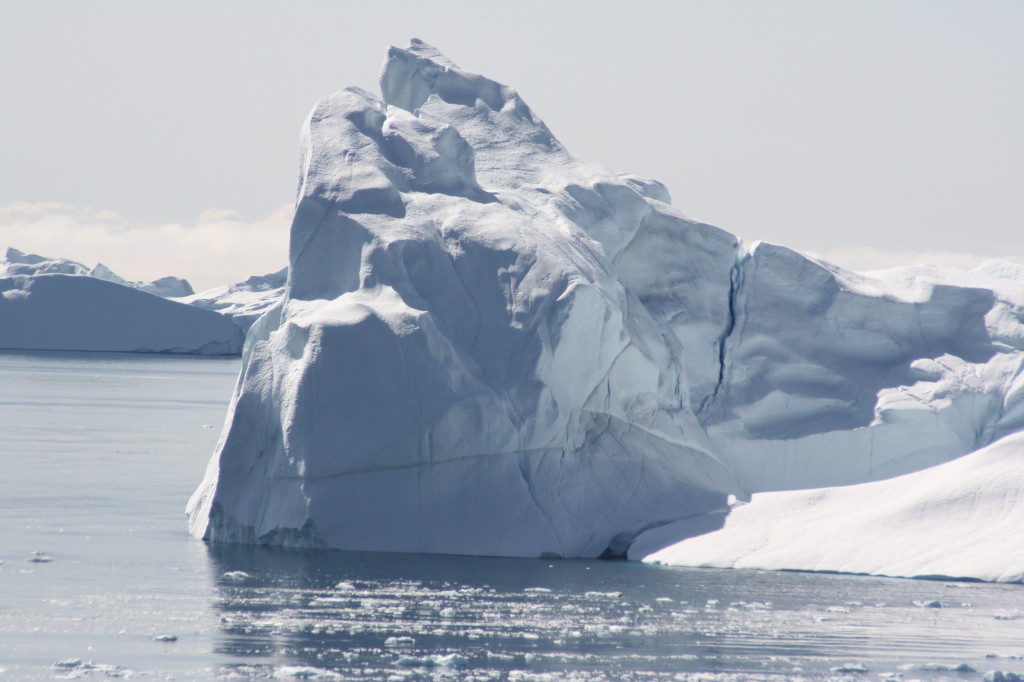




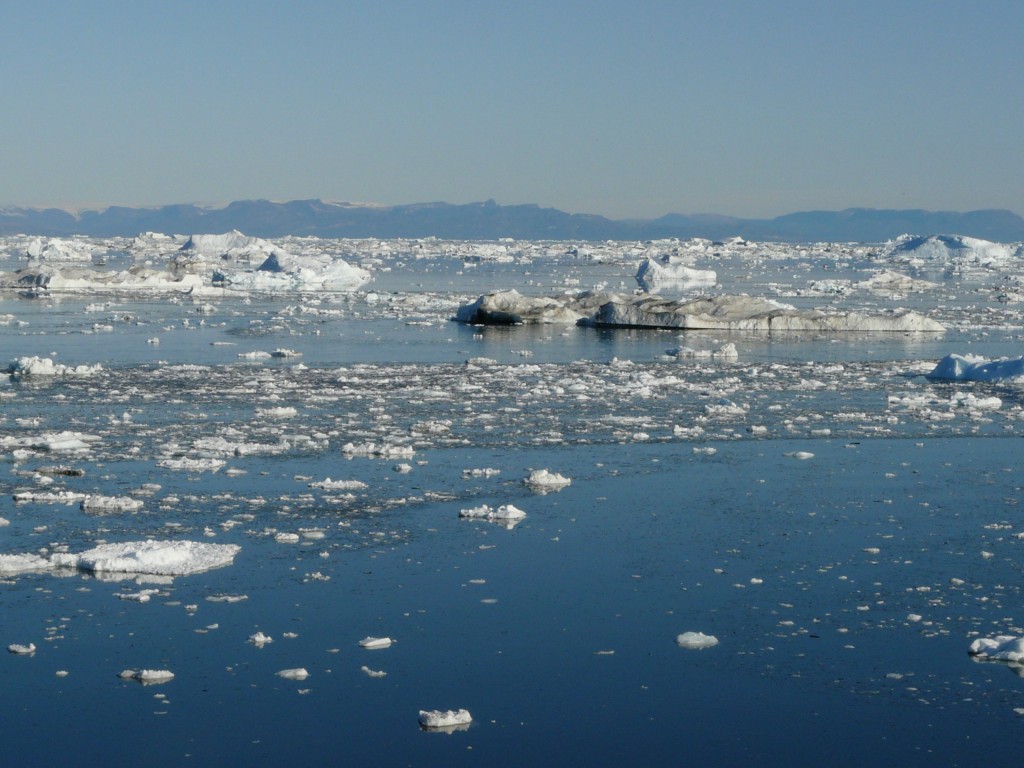
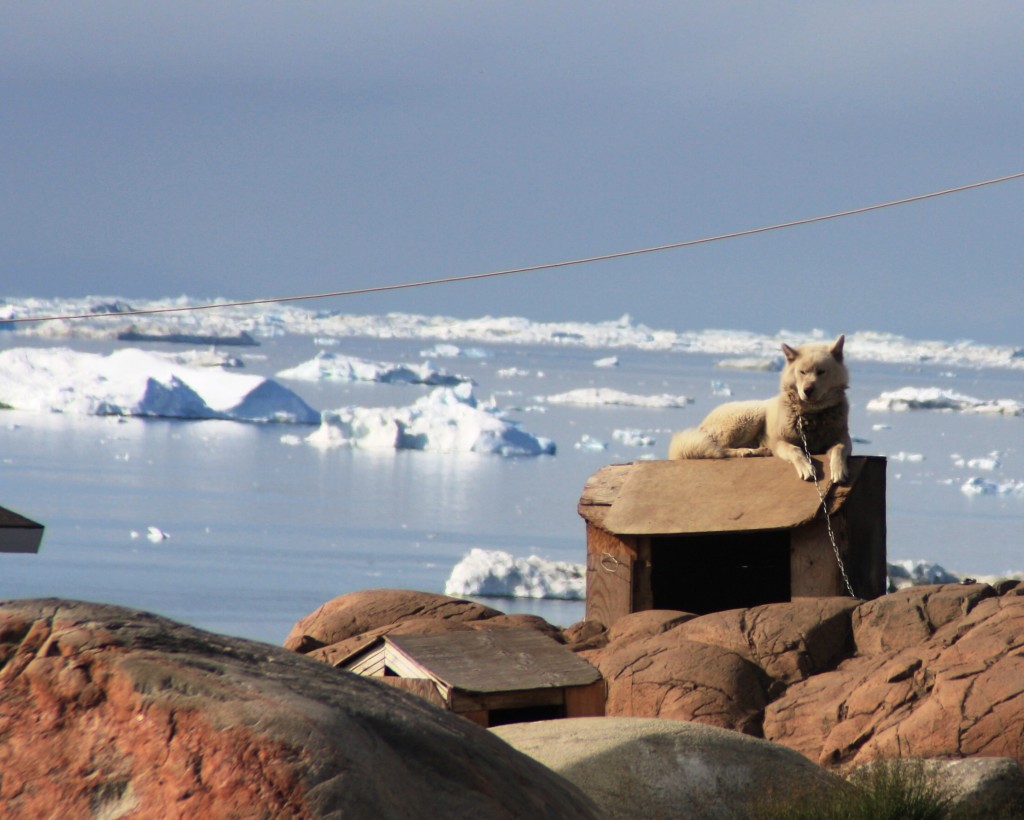
![6418.3[1]](http://blogs.dw.com/ice/files/6418.31.jpg)
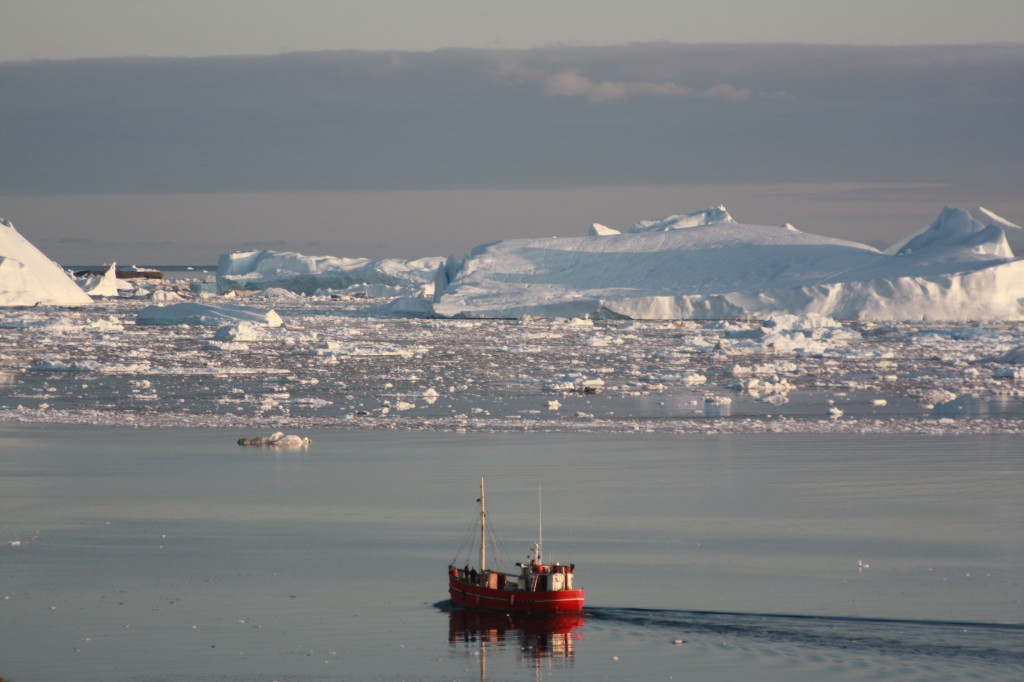
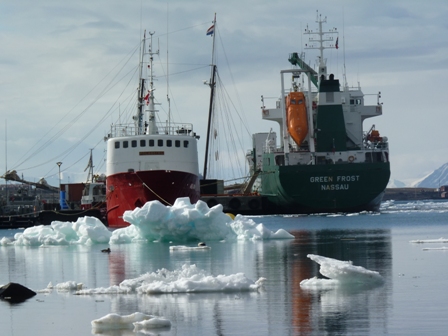
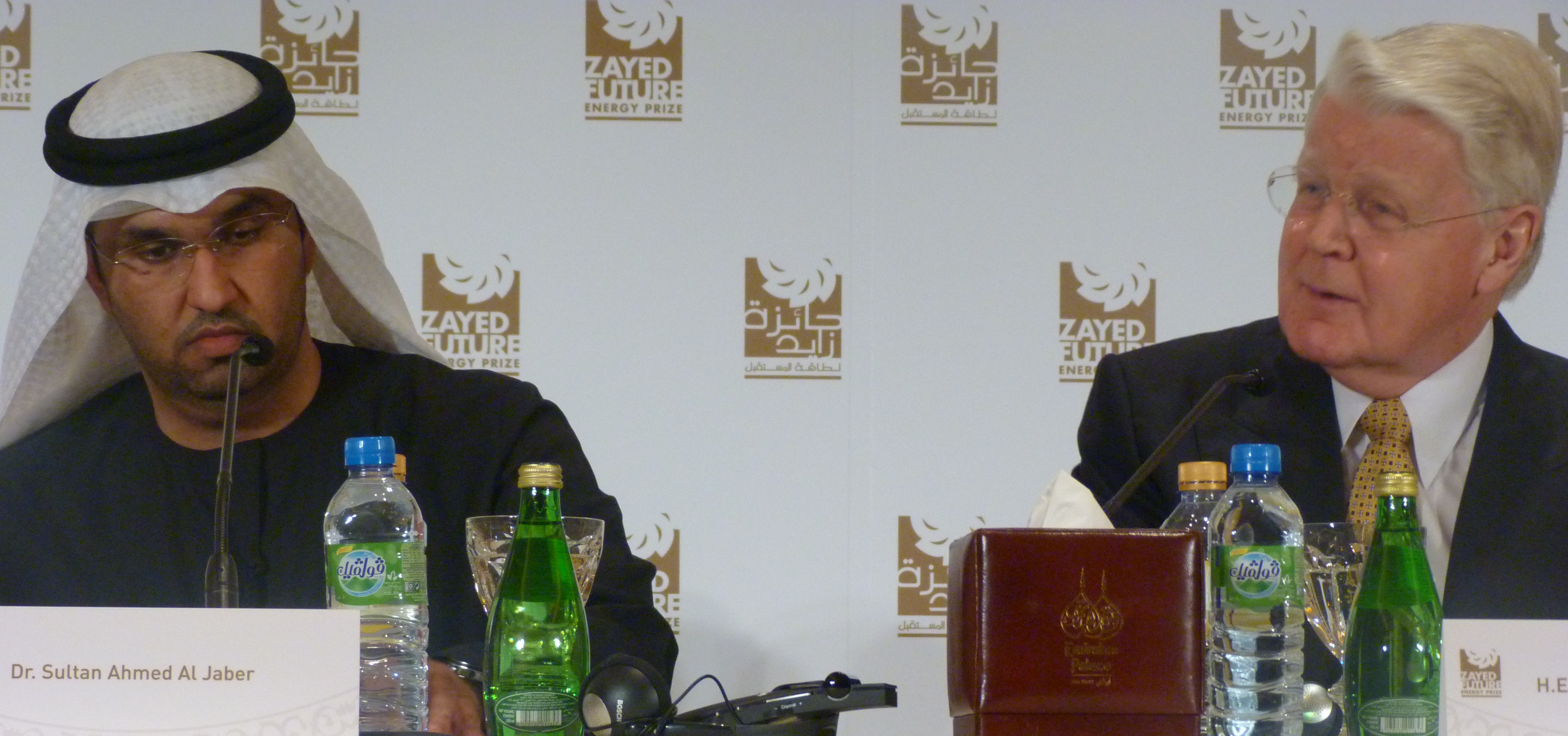
















Feedback